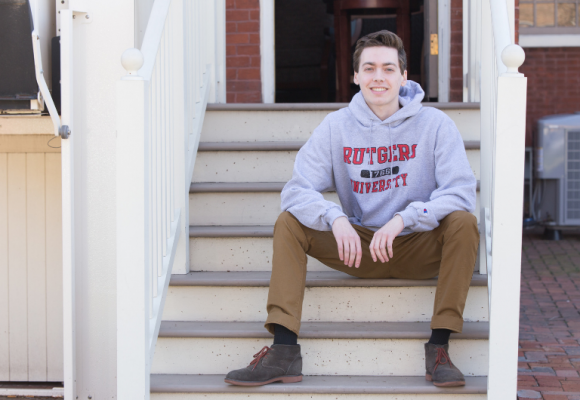
"I never would’ve realized the holes in my own understanding had I not tried to explain it to a group of tired teenagers."
After my first year of law school, I was looking for something. As a Rutgers University–Camden undergrad, I was used to getting out and serving the community. I was able to apply what I learned in a real, tangible way. But during my first year of law school, my demanding and rigid schedule didn’t allow as much of that. I needed to be working in the library or taking a break from work for my sanity. Once my first year was over and I earned more flexibility with my schedule and workload, I was looking for an opportunity to get back to what I loved doing in undergrad. This was when I learned about the Marshall Brennan Constitutional Literacy Project Fellowship, or Marshall Brennan.
Marshall Brennan is an opportunity for law students to teach a class of Camden high school students about constitutional law and oral advocacy. An opportunity to leave the walls of the law school, apply what I was learning in law school, and get back into the community. That’s what I was looking for.
Being a Marshall Brennan fellow has been one of the most educational and rewarding parts of my law school experience. One of the best ways to learn about a topic is to try teaching it to someone else. Having to break down (often unnecessarily) complex legal concepts for high schoolers pushes me to look at the Constitution and case law at the most fundamental level and focus on what students really need to know. For example, there was one class where I went in very excited to teach substantive due process. None of the students got it. I had to reflect on my own understanding of the topic and work on that before I could explain it to others. I never would’ve realized the holes in my own understanding had I not tried to explain it to a group of tired teenagers.
Every week I get to teach students constitutional law and how it shapes their everyday lives, from freedom of speech in schools and on the internet to police pat downs and traffic stops. My perspective as a law student can be vastly different from that of a high school student, and these different perspectives all bring something valuable to our discussions. Moreover, I get to teach students how to voice their great, raw ideas on constitutional issues in a persuasive, organized way. It’s a great privilege and responsibility to teach students about their rights and how they can use this knowledge to make real social change in their high school, their neighborhoods, and beyond.
There’s another, perhaps less educational, value in being a Marshall Brennan fellow too. There’s the joy from students remembering things you told them weeks ago and apply them to today’s lesson. Or from students asking about other legal topics they hope you can teach them. Or from students saying that they wish you didn’t have to go on spring break because this is their favorite class. It’s these moments that make you feel like you’re using your knowledge and skills to actually make a difference for someone.
